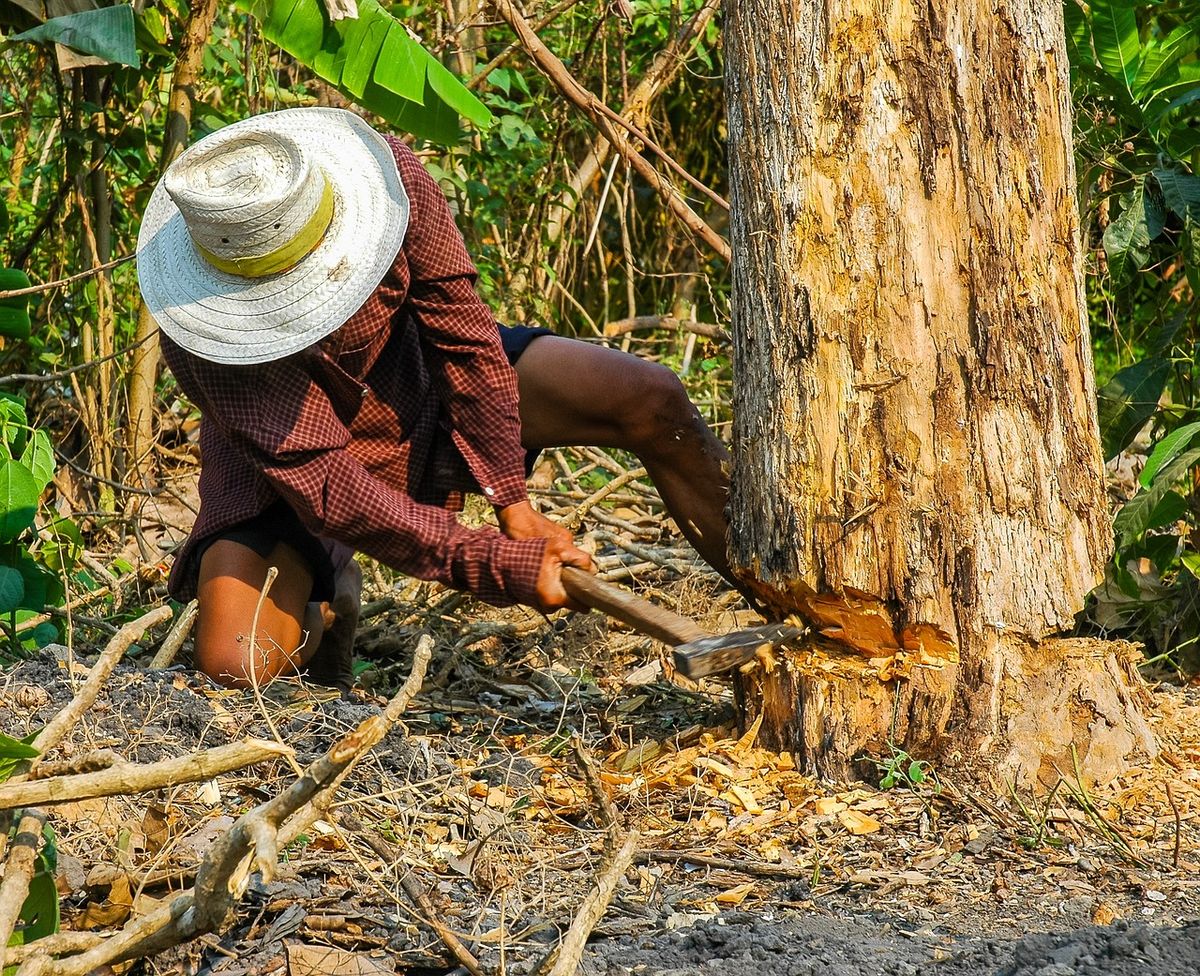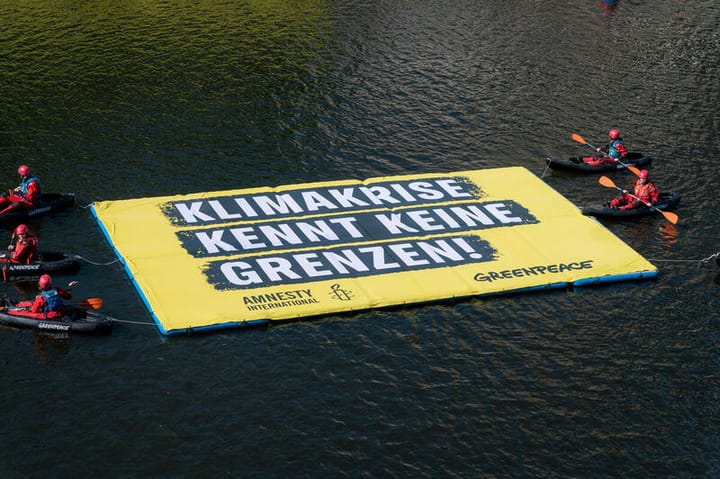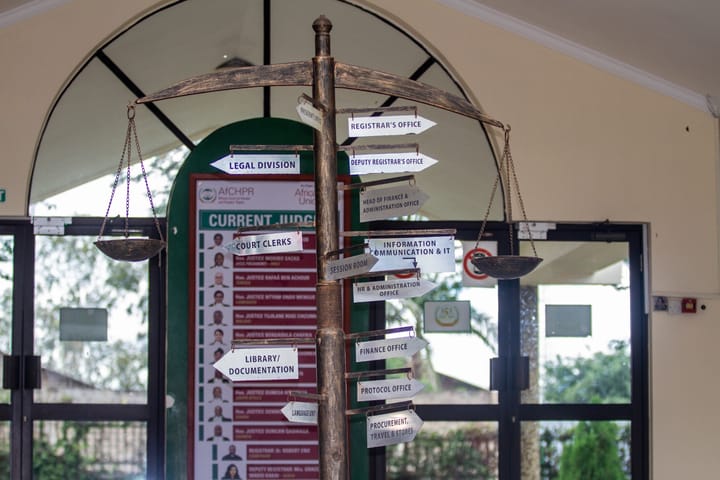Dubious carbon offsetting claims 'ripe' for legal action

European dairy company Arla Foods sells many different food brands, including Lurpak butter, Castello cheese and Skyr yoghurt, and its green and yellow logo evoking a pastoral ideal is recognisable on supermarket shelves around the world. But in February, it was banned from using the term “net zero climate footprint” when marketing its products in Sweden.
The Swedish Patent and Market Court agreed with the country’s consumer watchdog that Arla had misled consumers by giving the impression that making and transporting its products didn't generate any carbon emissions or that the company had fully offset those impacts.
Dairy tales
Alongside pictures of a sun, cow and tree, the packaging of Arla’s dairy goods promoted the company’s net zero strategy. But regulators said the average consumer couldn’t be expected to understand that Arla had achieved this by buying carbon credits from organisations that do things like planting trees. And its offsetting schemes were seen as problematic because there was no guarantee they would still be storing carbon over the 100-year period they had been accounted for.
Arla is far from unique in using carbon credits to offset its emissions; the voluntary carbon market is booming. According to consultancy McKinsey, demand could grow 100-fold by 2050 and is becoming “increasingly fundamental” to achieving net zero greenhouse gas emissions.
But concerns about whether offsetting works or is a dangerous distraction from genuine efforts to cut global carbon are growing.
Analysis of corporate climate plans by Carbon Market Watch and the New Climate Institute shows nearly all rely heavily on offsetting. Their report, published in February, says offsetting remains the “dominant and relatively easy option for companies to wipe away large chunks of their overall climate impacts at low cost and with appealing short-term marketing value” which is a “major stumbling block” for the credibility of those plans.
That approach is opening companies up to legal action, according to a briefing by litigious environmental law NGO ClientEarth.
Most cases have so far been brought against companies that make grander claims than they can substantiate, as part of a wider group of greenwashing cases questioning corporate climate commitments. Some target specific products marketed as carbon neutral while others take aim at a company’s wider climate strategy.
In one example, environmental groups are suing Dutch airline KLM under the EU's Unfair Consumer Practices Directive, saying adverts promoting its sustainability initiative are misleading. KLM’s Fly Responsibly campaign features a carbon offset product called CO2Zero, which Netherlands-based group Fossielvrij NL, Reclame.NL and ClientEarth claim does nothing to limit the company’s environmental damage.
Another claim is being brought by a group of environmental organisations against TotalEnergies in France. They say the company’s advertising of its ‘net zero’ strategy, which includes plans to use offsetting to achieve its steep carbon reduction targets, is misleading.
Meanwhile, in South Korea, activist groups have accused SK Lubricants of greenwashing, alleging the company is using an unreliable carbon offsetting project to advertise its products.
And last year, a claim was filed against Danone under US consumer protection law, arguing the “carbon-neutral” claim on labels of its Evian bottled water is false and misleading. Danone claims to have offset carbon emissions created by the manufacturing process, but Stephanie Dorris and others say those credits are bought from companies that do not “currently or actually reduce CO2 emissions” and will not do so for decades.
It’s a “hugely ripe” field for litigation, says Dr Ben Franta, senior research fellow and head of the Climate Litigation Lab at the University of Oxford.
Regulators are also becoming increasingly concerned. Research by the UK’s Advertising Standards Authority (ASA) found consumers were very confused about what terms like ‘net zero’ and ‘carbon neutral’ meant, but the biggest misunderstanding was around the word ‘offset’. Some assumed offsetting referred to an absolute and direct reduction of carbon emissions and people tended to “feel misled” when they learned that companies were often relying on offsetting - either partially or wholly - rather than directly reducing carbon emissions.
Its research also singled out high-emitting and high-profile sectors such as air travel, energy and automotive advertising, where the role of offsetting could mean greater disappointment for consumers.
The ASA issued new guidance in February, which warned marketers to be clear about whether and how much their companies are actively reducing carbon emissions or are basing claims on offsetting. Where claims are based on offsetting, they “should comply with the usual standards of evidence for objective claims set out in this guidance, and marketers should provide information about the offsetting scheme they are using”. Just this week it banned an advert by airline Lufthansa for making unjustified climate claims.
It’s not the only advertising regulator grappling with this issue; complaints have been lodged in the UK, France, Switzerland, Belgium and the Netherlands against football association Fifa's promotion of the Qatar World Cup as a carbon neutral event.
Riper and riper
As the decision against dairy giant Arla shows, greenwashing claims with offsetting elements are starting to succeed, whether through private litigation or regulatory action.
Shell has been repeatedly called out over the past couple of years by the Netherlands’ advertising watchdog for a campaign that promotes its environmental endeavours. The Advertising Code Committee ruled four times in 2022 that the company’s advertising of carbon offsets misleadingly implied they were fully offsetting the greenhouse gas emissions from driving.
And Ryanair had to adjust its carbon offset compensation scheme following an investigatory sweep of the aviation industry by the Netherlands’ Authority for Consumers & Markets.
Other legal action aims to protect shareholders, rather than consumers. In Australia, the Securities and Investments Commission (ASIC) has fined a number of firms for misrepresenting their climate credentials. One called Black Mountain Energy had claimed its gas project would be net zero but hadn’t measured how much emissions it would generate, how much it would need to offset it by or how much that would cost.
“Can anyone actually guarantee that that carbon is not going to get re-emitted into the atmosphere?"
The carbon credits themselves that companies seek to use to offset their emissions are also coming under intense scrutiny. A major investigation into forest credits from the biggest certifier Verra published by the Guardian recently concluded that most were worthless.
There have been criminal cases, such as one in the US where the CEO of a security company was charged with fraud after selling fake carbon credits that did not offset anything at all.
But there are much more prosaic issues with the concept: Will the carbon be captured for long enough? Would that activity have happened anyway without the offset project? Does suppressing one activity that worsens climate change just result in an increase elsewhere? And are the credits being double counted?
In Australia, the competition watchdog began cracking down suspected on corporate greenwashing in October, including scrutinising the validity of Australian carbon credit units.
“Can anyone actually guarantee that that carbon is not going to get re-emitted into the atmosphere?” asks Dr Franta. “In society, we have contracts for 30 years, 40 years. There are some very rare examples of contracts that last over 100 years, usually in real estate. But can anyone actually guarantee that this tree is not going to burn down for 100 years?”
Whether legal action will extend to other companies involved in the offsetting supply chain, however, remains to be seen.
Some foresee potential class action lawsuits against brokers or certification organisations that develop standards for quantifying emissions reductions or confirm whether projects meet their goals. These would typically be financial damages claims by their customers or investors, but could also be brought by indigenous groups pushed off their land for climate-related projects with the support of third-party funding. Professor Paul Watchman, special legal adviser to UNEP on sustainable development principles, says such cases would be the “greenwashing scandal of the century” if they succeed.
Dr Franta thinks they would be a fascinating insight into how the offsetting market operates, but it would take a brave company to admit it had been duped. Johnny White, a lawyer for ClientEarth who supports consumer law cases with offsetting elements, agrees that intermediaries are more likely to be harmed by damage to their reputation or a shift away from offsetting as a whole.
Deflection techniques
Ultimately, even if companies could convincingly argue they have offset some of their greenhouse gas emissions by buying carbon credits and are upfront about how and how much they do this, there simply aren’t the resources available on earth to make up for all the damage being done. Last year’s Land Gap Report found there isn't enough room in the world for all the golden promises of reforestation.
While the UK’s Climate Change Committee sees a “small but important role” for using high quality credits, it says the absence of stronger regulation has led to a “real risk that voluntary carbon markets slow progress towards net zero or damage other priorities such as climate adaptation and biodiversity”.
Dr Franta notes that reforestation was one of the original deflection techniques identified by the oil industry as a way to maintain fossil fuel consumption. “Some of the oil companies like Shell even observed that, because they have experience in tropical forestry because of their oil and gas operations, they might also be able to run the offset market, and then make money that way too. Offsetting was then adopted and promoted by a lot of environmentalist groups, so the whole idea got internalised by a lot of the climate community.”
White is already starting to see a shift, at least among the most forward-thinking companies and carbon accounting platforms, away from offsetting and towards the idea of carbon credits as an extra way of boosting their climate impact. “Companies that want to communicate credibly on this are starting to make those sorts of contribution claims in the description of what they're doing,” he says.
But he does expect more legal challenges in future and says they are one reason companies heavily reliant on offsetting or high emitters are having to rethink their climate strategies.
Dr Franta expects many more claims under consumer protection laws in particular, which generally don’t require companies to have misled customers on purpose to be found to have breached the law.
While misleading offsetting claims are “increasingly recognised as a legal liability”, however, Carbon Market Watch’s report found that many companies still see huge marketing value in making these statements and are simply carrying on the practice under a different name; examples include ‘neutralisation’, ‘balancing out’, ‘netting out’, ;compensating’, and the “especially problematic terminology” ‘insetting’.
It says that could change if governments and courts take steps to more stringently regulate claims or if consumers and investors send a signal that they are not willing to pay a premium for environmental credentials that rely heavily on contentious offsetting practices.
The UK’s Competition and Markets Authority (CMA), for example, which is already investigating a number of green claims, has recently been given new power to impose direct civil penalties on companies, which legal experts say are likely to lead to steep fines.
White says corporate reporting rules in development around the world could drive more genuine emissions cuts. An upcoming EU law, in particular, is expected to require companies to back up carbon neutrality claims with solid evidence.
Arla Foods, for its part, told The Wave in a statement it was disappointed in the ruling against it. “It was never our intention to mislead anyone," says Victoria Olosson, senior sustainability manager for Arla Sweden. "At the same time, the verdict confirms that sustainability communication is difficult, and that clearer guidelines are needed."



